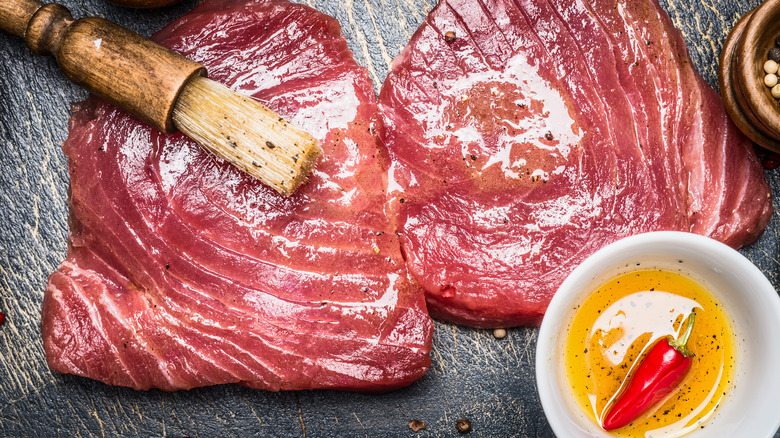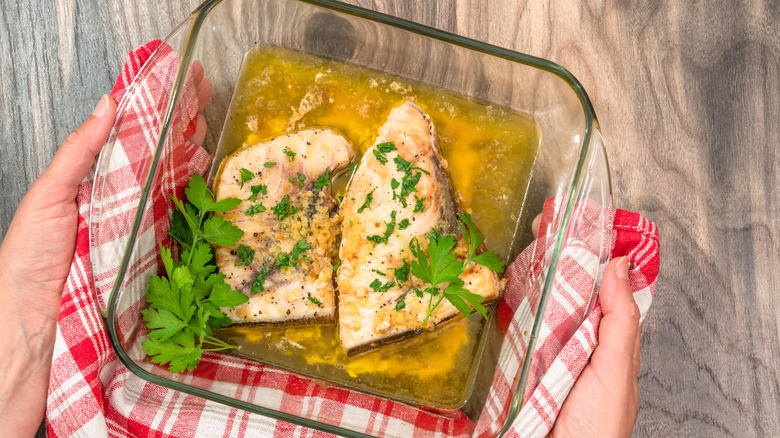The Biggest Mistake You're Making When Marinating Seafood
Here at Tasting Table, we love marinades for the depth of flavor they bring to a variety of proteins and veggies, from garlicky, mustardy London broil to nutty tahini chicken to sweet molasses-coated grilled vegetables. A liquid that usually features a mix of fat (like olive oil), acid (like lemon juice), aromatics (like garlic), and seasonings (like fresh herbs), plus salt, marinades work to infuse flavor into foods, as well as to tenderize them, which can be helpful for tougher cuts of meat (via Kitchn).
And, although fish might not be the first protein that comes to mind when you're considering a tasty marinade, many types of seafood can benefit from a flavorful soak. This ahi tuna poke bowl, for example, tosses cubes of sushi-grade tuna in umami-packed soy, sesame oil, and rice vinegar marinade, while these grilled swordfish steaks bathe in a mixture of olive oil, lemon juice and zest, fresh thyme, and minced garlic. But, if you're curious about marinating seafood, be sure to avoid this common mistake before heading to your fishmonger.
Don't marinate fish for too long
Marinating seafood before cooking it is a great idea, with fish such as tuna and swordfish and seafood such as shrimp benefiting from the technique. But, unlike tougher cuts of meat — such as pork shoulder, beef brisket, and hanger steak (via Kitchn) — delicate seafood doesn't need to soak for long. In fact, fish and seafood can actually start to turn overly soft if left to marinate for more than two hours, according to Eat This, Not That!
The site explains that particularly in the case of acidic marinades, ingredients such as citrus juice and vinegar will start to "cook" seafood — the exact idea behind a ceviche, if you think about it. If you're going to cook the protein with heat after marinating it, you certainly don't want to cook it twice. The Spruce Eats provides more specific guidelines, recommending a marination time of up to two hours for firm steaks such as halibut and tuna; up to half an hour for flaky filets such as salmon and trout; and between 15 and 30 minutes for shrimp. So, if you're hankering to marinate some seafood, have at it: Just don't leave the bowl in the fridge overnight as you might do for meat.

